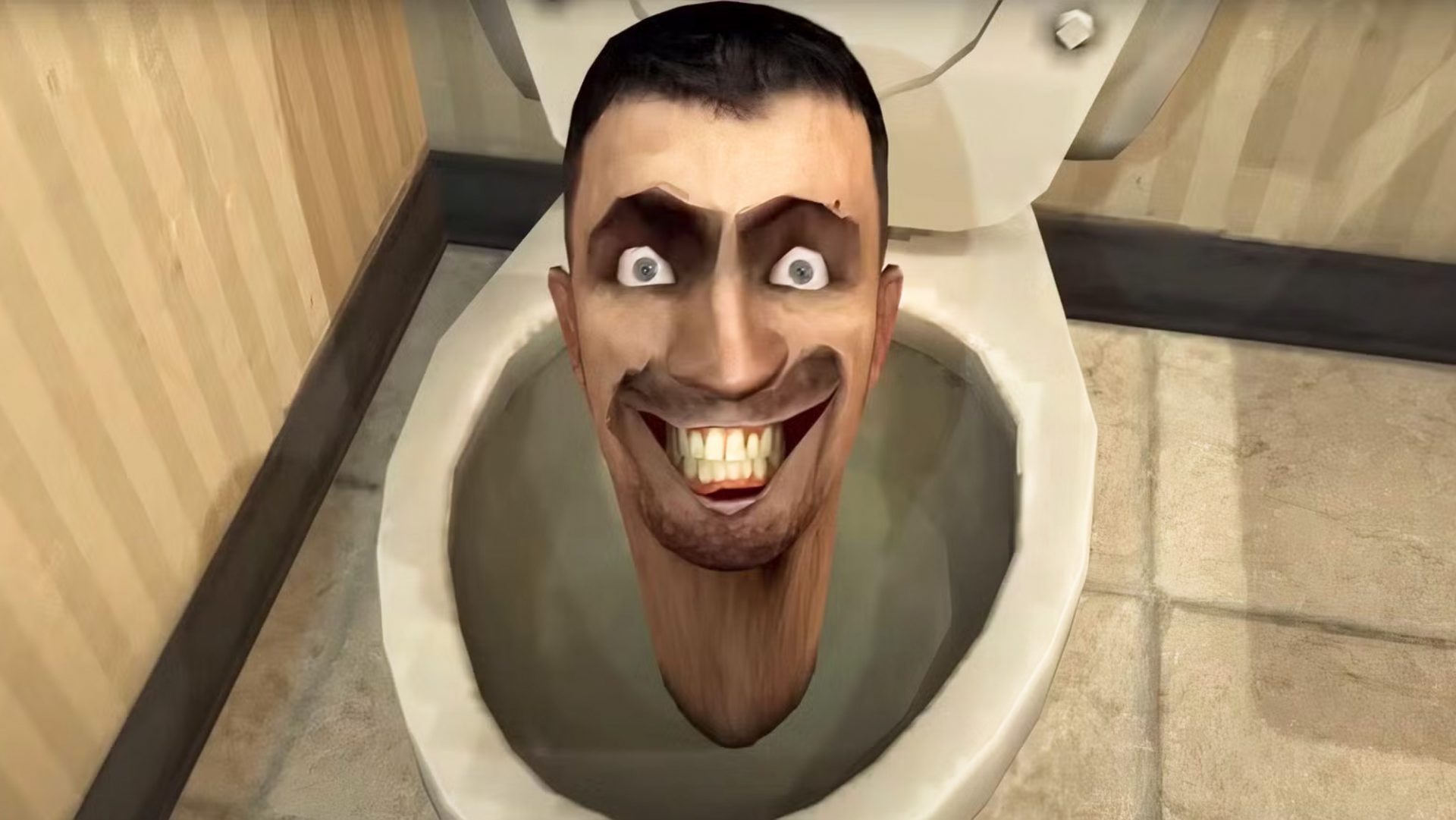There’s no polite way to say this: cinema is going down the toilet. Depending on your definition of “great cinema” – and, let’s be honest, your age – you might take that statement figuratively or literally. But for now, let’s focus on the facts.
Flying toilets with human heads and mechanical spider legs are about to become blockbuster movie stars. Millions of Gen Alpha kids are already using their name in incomprehensible sentences such as “skibidi Ohio sigma rizzler Ohio level zero gyatt” (roughly: bad). Brainrot is at an all-time high.
Welcome to the era of Skibidi Toilet, the viral YouTube series that’s racked up billions (yes, billions) of views since launching in 2023, evolving into a global phenomenon and prime IP bait for Hollywood. Its premise is both ludicrously absurd and surprisingly complex.
Evil toilet heads have taken over the planet and are fighting a violent war against The Alliance, a set of humanoid characters that also fly and have cameras, speakers and TV screens for heads. With 78 episodes across 26 seasons, the lore is ever-evolving – layered and expansive in the same way that certain memes are only funny if you spend 12 hours a day on the internet.
In fact, Skibidi Toilet is a meme. The first unsettling “episode” was just 11 seconds long, featuring a man’s head popping out of a toilet singing “Skibidi dop dop dop, yes yes, skibidi dabadu, neep nee”.
It is, quite literally, the stuff of nightmares – Skibidi’s creator Alexey Gerasimov was inspired to create the videos after a series of recurring toilet-themed dreams. (One of them, he claims, even featured Jesus Christ, who told Gerasimov that “the world is blessed with Skibidi Toilet”.)
And now, it’s coming to the big screen courtesy of Invisible Narratives, the media company headed by Michael Bay and Adam Goodman. Details around the film are almost as confusing as Skibidi-mania itself: despite initial reports that Bay would be directing the toilet heads’ Hollywood debut, he’s since denied the claims – even though they started life in a press release from his own company. One thing is certain, though: a Skibidi film is currently in production, which means parents around the world may soon be forced to fork out a small fortune for the luxury of watching malevolent toilets fire laser cannons at Vue.
Suggested Reading


The rise of recession pop
Surprised? Me neither. It was only a matter of time before studios began mining memes for IP. The Marvel machine has started to stutter, and there are few toys as ubiquitous and beloved as Barbie to keep money rolling in (sorry, Polly Pocket). This is the inevitable next step in Hollywood’s increasingly surreal quest for bankable franchises, films that guarantee ticket sales by tapping into pre-existing cult followings, no matter how bizarre or flimsy the source material. Next to, say, Uno – one of many Mattel films in production following Barbie’s billion-dollar box office success – Skibidi Toilet is actually a remarkably sophisticated IP. Because, you know, it has a plot.
It also helps that memes are marketing gold. They can turn bog-standard junkets into bona fide cultural moments, transform critically panned performances into cult favourites and convince young people to actually go to the cinema instead of watching films in 43 parts on TikTok. Wicked was always going to be popular, but Ariana Grande and Cynthia Erivo’s bizarre “holding space” interview turned the press tour into a never-ending meme cycle, ensuring pink-and-green clips were on everyone’s feed, musical fan or not. On the other hand, there are films like Morbius, which had a Rotten Tomatoes score so abysmal it seemed doomed to fail – until the internet ironically memed it into a streaming hit.
And let’s not forget Minions: The Rise of Gru, which inspired packs of teenage boys to dress up in suits for screenings as part of the #Gentleminions trend. Some UK cinemas ended up banning kids in formalwear due to their boisterous behaviour. The film grossed just shy of a billion dollars, with 34% of the audience reported to be between 13 and 17 – an unusually old crowd for a kids’ film. Even the latest Bond outing didn’t pull in those numbers.
But Hollywood can’t plan those moments. The meme-fication of cinema lies in the hands of the audience, not marketing execs. It makes sense, then, that studios would begin to intentionally bake memes into movies as part of their release strategy.
Take the recent A Minecraft Movie, for example, a live-action spin-off of the video game which broke box-office records earlier this year, thanks to a similar cohort of mostly teenage boys who turned screenings into rowdy content farming opportunities. Eventually, Warner Bros launched special “Block Party Edition” showings, actively encouraging fans to sing, talk and “meme-along” with the film’s viral moments – cinema etiquette be damned.
There’s almost no doubt that Skibidi Toilet will have an equally unruly roll-out when the film eventually drops. At a time when deranged irony is the only thing that seems to hold audiences’ attention en masse, these toilet heads could emerge as triumphant heroes of post-streaming cinema, poised to take the box office by storm via participatory chaos and generational in-jokes.
Make of that what you will, but it’s hardly the death of cinema. If the success of recent meme-assisted releases is anything to go by, internet-born IP may have the potential to resuscitate an industry that’s been in steady decline for over a decade.
Will Skibidi Toilet: The Movie be any good? The jury’s still out. But rest assured that its audience will enjoy it either way.
Mainstream cinema-going is no longer about the art, the performance, the prestige directors or the expertly shot camera work. The goal is no longer to watch, but to react, be part of a viral moment or, at the very least, claim cultural superiority as one of the few who actually get it. It’s about the experience – on and offline. And in a way, it’s oddly democratic. Forward we march towards a new frontier of cinema, as decreed by the brainrot trolls.
Olive Pometsey is an award-winning journalist whose credits include Elle, GQ and The Face




